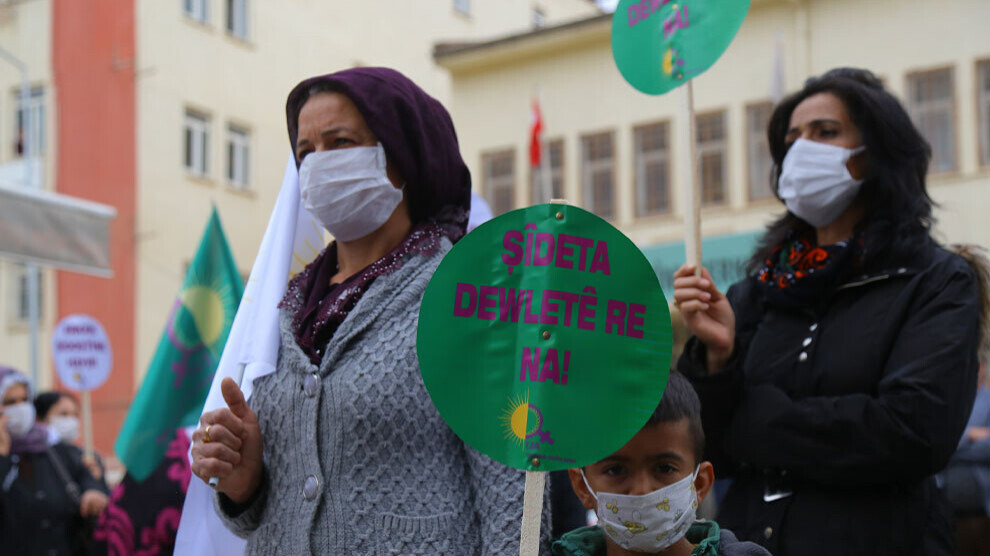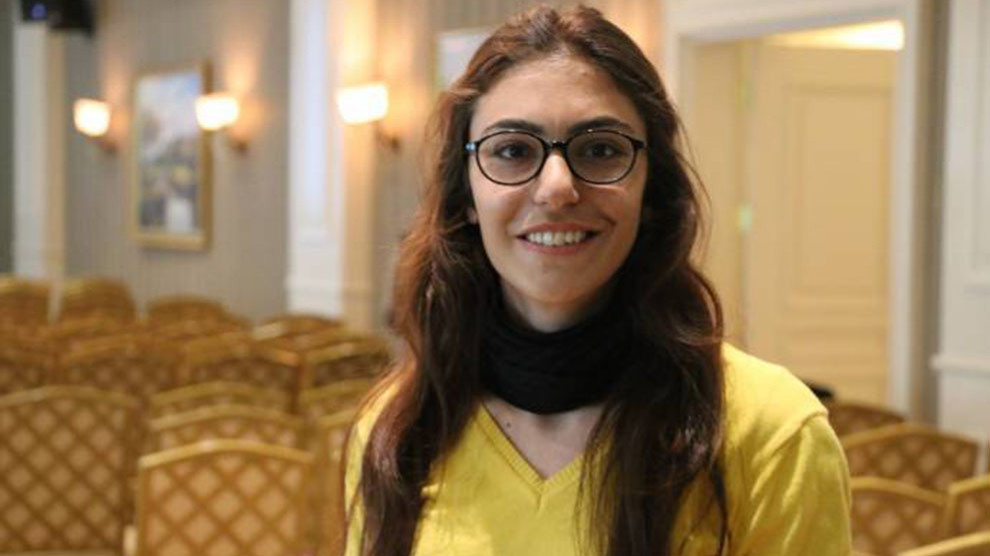Self-defense campaign of the TJA continues
The campaign "We defend ourselves" launched on September 15 by the Kurdish women's movement TJA continues in the new year.
The campaign "We defend ourselves" launched on September 15 by the Kurdish women's movement TJA continues in the new year.

On September 15, the Free Women's Movement (Tevgera Jinên Azad, TJA) in Northern Kurdistan launched its campaign "Em xwe diparêzin" (We defend ourselves). Since then, events, seminars and actions have been carried out in several cities. The campaign runs under three headings: organizing, mother tongue, education and action. Within the framework of the initiative, many actions are taking place against the isolation of Abdullah Öcalan, repression, harassment, rape and attacks on mother tongue and the diversity of world views.
In an interview with ANF, Gülizar Ipek from the Women's Council of the KESK federation of trade unions and a member of the women's movement TJA in Mardin as well as Leyla Atsak from the HDP Women's Council in Van report on the developments and perspectives in connection with the campaign.
At home the "little enemy," outside the "big enemy"
Gülizar Ipek explains why the campaign was launched at this particular time and is especially important now; "We started our campaign at a time when violence against women, assaults and femicides are on the rise due to special war policies. As you know, the attacks against women are a practice constantly used by the states. They have built their policies on division and attack. They don't want women to unite. We organize women to act together and tell them how to take a stand against the violence of the male-state complex." Ipek describes the situation of women as standing between the "small enemy at home" and the "big enemy outside."
"They wanted to break the bond between women"
Gülizar Ipek recalls the Turkish state's massacres in Cizre, Nusaybin, Sur, Hakkari and Van in 2015 and describes this period as a turning point in the lives of women. She says that the state tried to break the bond between people by forcibly relocating them to state housing blocks after the destruction of the cities. This, she says, undermined the crucial obstacle against patriarchal violence - women's solidarity. She elaborates, "They have severed the ties among women that prevented violence in the home. They have created a structure for violence. We see this in how significantly violence against women has increased in Van or even in Mardin.”
"State and men do everything to make sure women don't fight"
They attack women to take away a society's identity. Because if the woman loses her belief in fighting, then that includes society. It's about making society passive. Let's take a look at the resistance. Especially in these provinces, there are arrests and repression. Every dawn is accompanied by a new operation. The state and men do everything to make sure that women do not fight. They do this to get women off the streets. After 2015, all women's institutions were closed. That sums it up in a nutshell. The attacks on the Roza Women's Association and the closure of the Congress of Free Women (KJA) were aimed at exactly this goal."
Do not think that you are untouchable: we are here!
Trade unionist remembers rapist Musa Orhan. The Turkish sergeant is accused of raping 18-year-old Kurdish woman Ipek Er from Batman and driving her to suicide. Nevertheless, he is at large. Ipek quotes Orhan's words, "I did this dozens of times and I will do it again, nothing happens to me," and continues; "They do it all the time and nothing happens to them. So we said, 'We are here defending ourselves against those who feel themselves untouchable.' We haven't seen a uniformed rapist in court in this country in years. We move from place to place, neighborhood to neighborhood. At women's gatherings, women tell us about the male violence they experienced. Many cases of rape and assault have come to light during this campaign. We've done education adapted to each province and created awareness."

Facing assault everywhere
Leyla Atsak says Kurdish women face assaults everywhere they live. Pointing to the legitimization of patriarchal violence by the state, Atsak says; "The Istanbul Convention has gained importance especially here. The social constraints produce the same problems everywhere. Women are ascribed the role of mother and housewife. This is a serious problem in Van in particular. In Van, the level of education is very low. Women are confined to their homes because of the feudal and conservative structure. Because of this, the oppression of women is particularly fierce there. Women turn to us mainly because of problems arising from this form of oppression. But women are supposed to be silent in the face of these attacks."
"We will not be silent in the face of this isolation"
Atsak continues, "The isolation is clearly reflected in the lives of women today. This violence is systemic in nature. We are fighting against all kinds of violence. Women are fighting for freedom and equality and going public. This is especially true for Kurdish women. They have not been able to bring up what they have experienced in our country under the concept of 'honor'. This is also a result of isolation. But there are women who openly raise their voices against male violence. They are no longer willing to be silent in the face of isolation."
